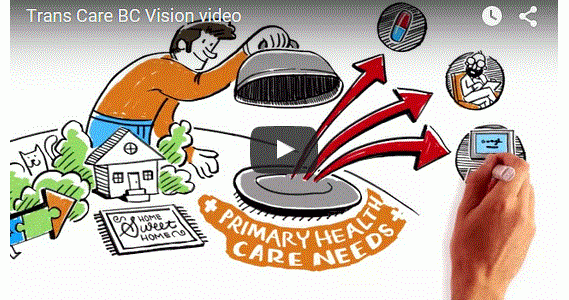Progress made in transgender health program for BC
“Transgender communities are incredibly diverse and trans people can be found in every walk of life,” says Devon MacFarlane. “Unfortunately, most people from trans communities have had negative experiences with the health care system in BC and beyond.”
And Devon would know, as a member of the trans community and president of the Canadian Professional Association for Transgender Health as well as someone works in our publicly funded health system. The good news is that the health system is making great strides in the creation of a provincial transgender health program for BC.
In October of last year it was announced that the Ministry of Health, Provincial Health Services Authority (PHSA) and Vancouver Coastal Health (VCH) were working together to offer expanded and sustainable health services to support transgender communities across the province. Since then, PHSA became responsible for provincial co-ordination of transgender health services across BC, and began consultation with people from transgender communities, clinical experts, and other stakeholders.
An expert steering committee reviewed current services and supports and provided input into feasible short and long-term strategies to meet the health needs of this population. The committee, which included trans people and family representatives, has developed a provincial network model for person and family-centred health care services for transgender British Columbians.
“I think this work is cutting edge, not only for Canada but for the world,” says Devon, who was also one of the working group members.
Key focus areas of the model include the development of:
Community/peer support: Improving the consistency of peer support services by trained facilitators throughout the province. Organizations that provide peer support services would be members of a provincial knowledge exchange network and supported through a hub-and-spoke infrastructure model.
Primary care access & consultation: Increasing provincial access to experienced and culturally aware health care providers that are motivated to work with trans people; increasing General Practitioner (GP) comfort, knowledge, and ability to provide hormone therapy and transition support (linked with health care provider education).
Health care provider education: Enhancing the ability and skills of health care providers and support staff to provide care to transgender individuals by educating providers on World Professional Association for Transgender Health (WPATH) Standards of Care, and trans inclusive policy and practice.
Gender-affirming surgery: Providing gender-affirming surgical options closer to home and increasing access to publicly funded readiness assessments, upper surgeries, and information about procedures, process, and wait times.
Devon shared that what makes him most excited about this model is that it’s focused on supporting people where they are.
“I met a trans woman from a town of under 5,000 people who was transitioning, and the closest discussion/support group was three hours away! Having peer support closer to home can literally be a lifeline to people living in small and rural communities.”
The work to-date is a credit to the collaborative efforts and partnership between transgender communities, Health Authorities, non-governmental organizations, and the Ministry of Health. The Trans Care BC group is committed to continuing partnership and collaboration planning and implementation move forward. As a first in Canada, this work to support transgender health on a provincial scale is being shared at the Canadian Professional Association for Transgender Health (CPATH) conference in October.
Watch the video
Watch the animated video of the Trans Care BC model.
More information
More details about this work can be found here.

